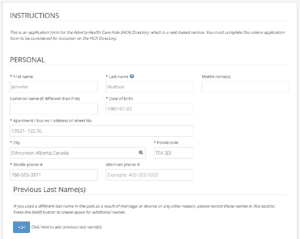 Like virtually all technologies, the early days of the Internet were unreliable and not particularly useful. Bulky modems and slow, loud dial-up connections made getting online a hassle. Worse, most websites were shallow and difficult to use. Oftentimes a website was little more than a slow-loading picture or a jumble of text.
Like virtually all technologies, the early days of the Internet were unreliable and not particularly useful. Bulky modems and slow, loud dial-up connections made getting online a hassle. Worse, most websites were shallow and difficult to use. Oftentimes a website was little more than a slow-loading picture or a jumble of text.
Things have changed dramatically since those early days. Broadband connections are fast and reliable. Websites have grown in both depth and complexity, and mobile phones allow us to take the internet with us wherever we go. From social media to banking, the internet is increasingly important to our everyday lives, and for good reason. Online services are often more reliable, accurate and convenient than traditional methods. As a result, there’s an increasing expectation for businesses and organizations to offer an online option as people look to use online services to manage their lives as they see fit.
 Because of this transition, software developers like Softworks have developed a mobile-first strategy. Even applications that aren’t typically thought of as being suited to mobile use are making the transition. By moving to a mobile-first strategy, software vendors and the organizations they serve remain competitive and relevant. Online services now provide licensing bodies with improved efficiency, accuracy, security and convenience for both members and staff. In order to be a modern, practice-leading organization, colleges and associations need to offer an online application service.
Because of this transition, software developers like Softworks have developed a mobile-first strategy. Even applications that aren’t typically thought of as being suited to mobile use are making the transition. By moving to a mobile-first strategy, software vendors and the organizations they serve remain competitive and relevant. Online services now provide licensing bodies with improved efficiency, accuracy, security and convenience for both members and staff. In order to be a modern, practice-leading organization, colleges and associations need to offer an online application service.
“To put it simply, the need for best-in-class mobile productivity solutions, combined with protection and control, is booming.” – Alex Sessoms, Senior Marketing Manager, Microsoft.
Improved Efficiency
Improved organizational efficiency is the foremost benefit of adopting an online application service. Applicants upload their paperwork and supporting documents at the point of application, so there’s no need for scanning papers by staff. Moreover, online applications automatically file everything. By letting members manage their own applications and profiles (such as updating employment history or changing addresses), licensing bodies can realize significant savings on their administrative costs. Staff and administration are freed up to focus other more important tasks. The expense of implementing an online application service is only a fraction of a yearly salary, and the savings continue to accrue over time.
Accuracy and Reliability.
Another key advantage of online applications is their accuracy and reliability. No application method is 100% foolproof. However, thanks to branching logic and conditional expressions, online applications are filled out in a prescribed manner that reduces errors. There’s also the tendency for applicants to be more careful about their data entry. Users want to get their applications right, leading to a reduction in typographical errors in the application.
Additionally, an online service means each applicant enters only one application. Administrators, on the other hand, typically enter multiple paper applications, and usually in large batches. This means long hours of highly repetitive work which can be difficult to focus on. This invites errors and inaccuracies which in turn cost time and labour to locate and fix. It also likely causes friction between the licensing body and affected members in the process.
Security
One of the concerns that licensing bodies may have about adopting an online application services is maintaining the privacy of their members’ information. Licensing authorities handle a lot of highly-sensitive information, and it’s important that they protect it. But as the internet and online services have matured, so to have information protection and security standards. While there have been high-profile breaches in the past, it’s important to remember that these incidents are the exceptions. Colleges and associations whose software vendors use the latest best practices in information security have less to worry about from technical hackers than they do from social hackers. The dangers of an online application process stop being technical ones when you have more to worry about from a savvy manipulator on the phone than you do from a black-hat hacker sitting behind a keyboard.
Member Convenience
 An online application process offers members the opportunity to access the application system at their convenience. Members can apply outside of normal office hours, and even on weekends. This is especially helpful for applicants in different time zones who don’t have access to licensing body staff or offices. And while members can often just mail documents and paperwork between the licensing authority and the potential member, this method still isn’t as convenient as an online solution. Physical mail is also prone to its own set of problems; it’s slow, and mailed applications can easily be lost or delayed. On the other hand, electronic transmission of on application through an online system is instantaneous.
An online application process offers members the opportunity to access the application system at their convenience. Members can apply outside of normal office hours, and even on weekends. This is especially helpful for applicants in different time zones who don’t have access to licensing body staff or offices. And while members can often just mail documents and paperwork between the licensing authority and the potential member, this method still isn’t as convenient as an online solution. Physical mail is also prone to its own set of problems; it’s slow, and mailed applications can easily be lost or delayed. On the other hand, electronic transmission of on application through an online system is instantaneous.
Staff Convenience
Online applications aren’t just more convenient for members, though. They’re more convenient for staff as well. Each application has all the relevant documentation attached, so there’s no sifting through reams of papers and bulky files. Less organizing and less physical filing means it’s virtually impossible to misfile supporting documents such as transcripts and identification papers.
The migration of services to the online environment has been relatively fast but with good reason. More often than not, online services are more efficient, more reliable and more convenient than their offline alternatives. As technology continues to advance so do expectations for easily accessible online services. Licensing bodies that adopt an online application process take advantage of the efficiency and convenience benefits. They’re also better positioned to serve their membership in the future.
